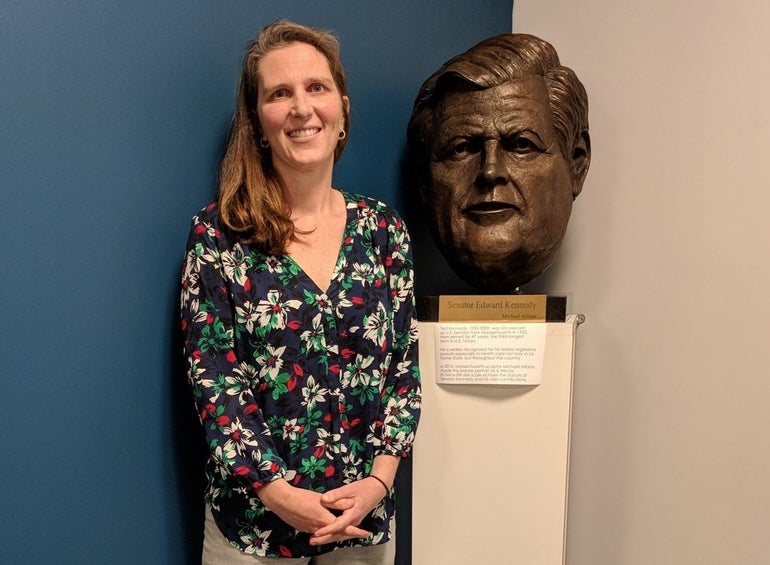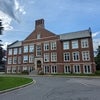Kennedy nurse practitioner straddles administrative and patient roles
 Photo/Grant Welker
"Seeing patients is what my job is really all about," says Abigail Mathews, a family nurse practitioner and an assistant medical director at Kennedy Community Health Center.
Photo/Grant Welker
"Seeing patients is what my job is really all about," says Abigail Mathews, a family nurse practitioner and an assistant medical director at Kennedy Community Health Center.
As a family nurse practitioner and an assistant medical director at Worcester’s Kennedy Community Health Center, Abigail Mathews straddles both the agency’s administrative and patient-facing operations. At different times of the week, she may be in Kennedy’s main offices on Lincoln Street, at its Tacoma Street health center, or at North High School, where she sees students for a range of reasons. North High is one of six schools in Worcester and Framingham where Kennedy staffs mini health centers, along with two school-based dental offices, as a way to allow students to conveniently get a check-up, a physical, or be referred to other specialists. Mathews, who mostly grew up in Massachusetts and Connecticut, has been with Kennedy since 2012, in the past four years as a nurse practitioner. She received her undergraduate nursing degree from Bates College in Maine and her master’s from the UMass Medical School’s Graduate School of Nursing. She began her career working in a cystic fibrosis clinic at Massachusetts General Hospital, and then began working at Kennedy part-time while getting her master’s. Mathews also trained with a preceptor at Kennedy, a role she now fills as a preceptor to a small group of nursing students.
Why does Kennedy have locations in schools?
It’s a way to be able to serve students where they are. It’s a unique way of dealing with them at that age. They’re talking with us directly without their parents there, and we can sometimes get questions or talk about things that are easier that way. This is a way to get access to students where we have a gap in care sometimes — parents can otherwise not necessarily have an easy time getting their child to a doctor’s office for a visit.
What do students visit for?
A lot of mental health comes up, and reproductive health. We do a lot of physicals, especially at the start of the school year with sports — this time of year, it’s often for basketball.
How do students come to you?
Sometimes, parents sign them up, or we get referrals or walk-ins. The school is very well equipped, and there are a lot of community partners it works with. It’s a very collegial, supportive staff. It’s a very resourceful place to work.
A lot of times, we’re helping people who don’t know how to access the right care. We see kids regardless of insurance status. Or if they’re new to the area, they might not have a primary care physician. Or some new arrivals may not have had primary care physicians back home, so they’re not used to coming in and getting regular check-ups. I see so many students who have different backgrounds each day. Getting them into routine care is important. It’s a great thing to be able to call them in to check in and say, “I haven’t seen you in a month.”
How did you end up at Kennedy?
I heard about Kennedy Community Health Center through an instructor at UMass. I didn’t really know much about what community health care centers were exactly, but I really like how we’re able to treat so much of the community, especially a share of the population may often be lower-income or have lower social determinants of health.
You were named the Tacoma Street facility’s assistant medical director this fall. How do you balance your administrative and patient roles?
Now, I’m working 24 hours a week in a clinical setting, once a week at North High and otherwise at the Tacoma Street site. The rest of the week is doing administrative work. But seeing patients is what my job is really all about.
This interview was conducted and edited by WBJ News Editor Grant Welker.









0 Comments